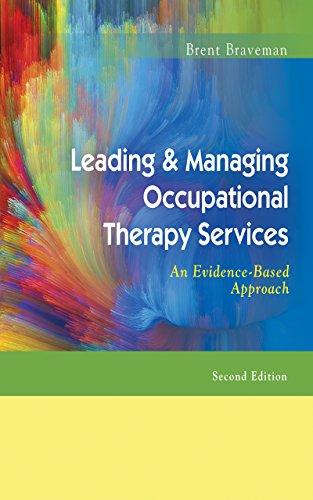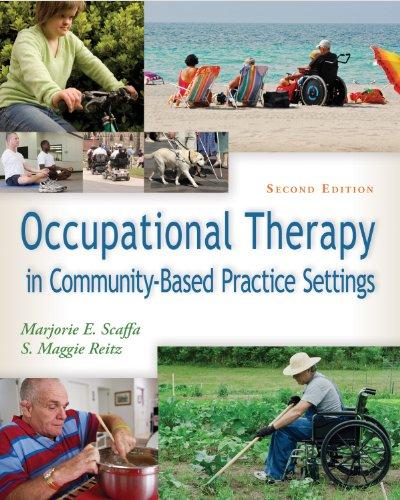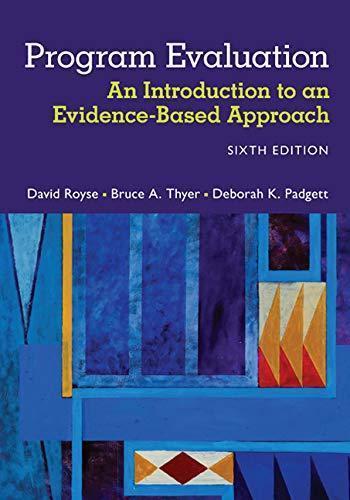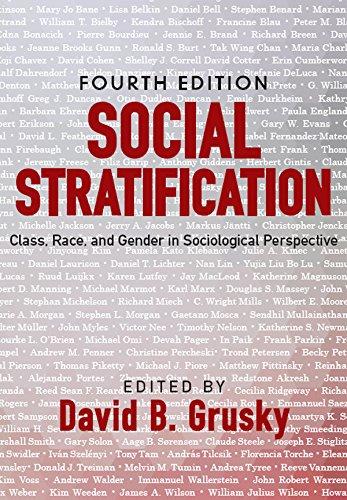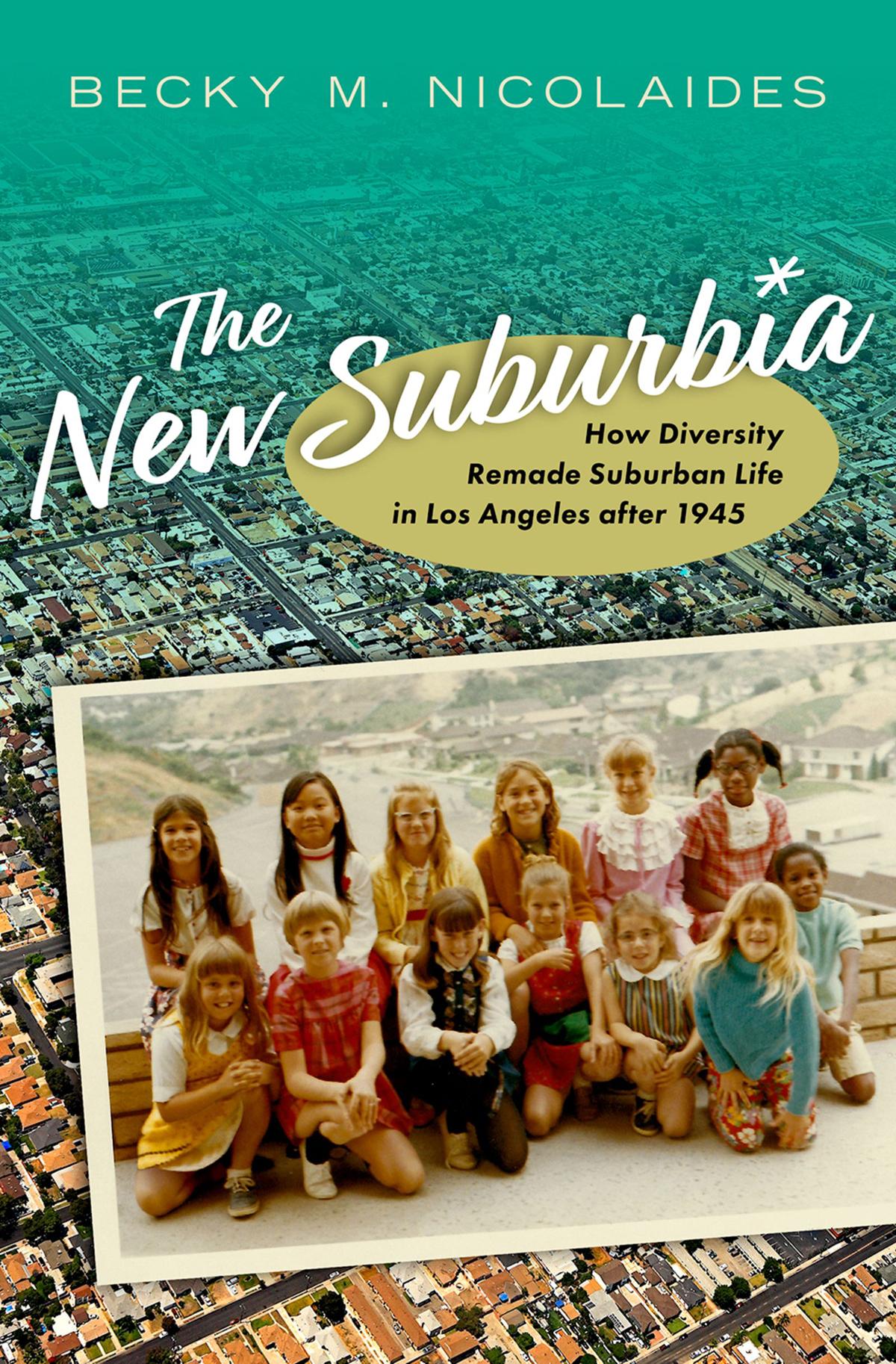Random
documents with unrelated content Scribd suggests to you:
and they came to him like children who have been given some task, and constantly are wanting to be encouraged and guided, simply and confidently. At dinner, he frequently addressed the servant familiarly, and drew him into our conversation as if he were a family friend, better informed, on some local and domestic points, than himself.
I have been visiting a coal-pit: the majority of the mining labourers are slaves, and uncommonly athletic and fine-looking negroes; but a considerable number of white hands are also employed, and they occupy all the responsible posts. The slaves are, some of them, owned by the mining company; but the most are hired of their owners, at from $120 to $200 a year, the company boarding and clothing them. (I understood that it was customary to give them a certain allowance of money and let them find their own board.)
The white hands are mostly English or Welsh. One of them, with whom I conversed, told me that he had been here several years; he had previously lived some years at the North. He got better wages here than he earned at the North, but he was not contented, and did not intend to remain. On pressing him for the reason of his discontent, he said, after some hesitation, he would rather live where he could be more free; a man had to be too “discreet” here: if one happened to say anything that gave offence, they thought no more of drawing a pistol or a knife upon him, than they would of kicking a dog that was in their way. Not long since, a young English fellow came to the pit, and was put to work along with a gang of negroes. One morning, about a week afterwards, twenty or thirty men called on him, and told him that they would allow him fifteen minutes to get out of sight, and if they ever saw him in those parts again they would “give him hell.” They were all armed, and there was nothing for the young fellow to do but to move “right off.”
“What reason did they give him for it?”
“They did not give him any reason.”
“But what had he done?”
“Why, I believe they thought he had been too free with the niggers; he wasn’t used to them, you see, sir, and he talked to ’em free like, and they thought he’d make ’em think too much of themselves.”
He said the slaves were very well fed, and well treated—not worked over hard. They were employed night and day, in relays.
The coal from these beds is of special value for gas manufacture, and is shipped, for that purpose, to all the large towns on the Atlantic sea-board, even to beyond Boston. It is delivered to shipping at Richmond, at fifteen cents a bushel: about thirty bushels go to a ton.
Petersburg.—The train was advertised to leave at 3.30 �.�. At that hour the cars were crowded with passengers, and the engineer, punctually at the minute, gave notice that he was at his post, by a long, loud whistle of the locomotive. Five minutes afterwards he gave us an impatient jerk; ten minutes afterwards we advanced three rods; twelve minutes afterwards, returned to first position: continued, “backing and filling,” upon the bridge over the rapids of the James river, for half an hour At precisely four o’clock, crossed the bridge and fairly started for Petersburg.
Ran twenty miles in exactly an hour and thirty minutes, (thirteen miles an hour; mail train, especially recommended by advertisement as “fast”). Brakes on three times, for cattle on the track; twenty minutes spent at way-stations. Flat rail. Locomotive built at Philadelphia. I am informed that most of those used on the road— perhaps all those of the slow trains—are made at Petersburg.
At one of the stoppages, smoke was to be seen issuing from the truck of a car. The conductor, on having his attention called to it, nodded his head sagely, took a morsel of tobacco, put his hands in his pocket, looked at the truck as if he would mesmerize it, spat upon it, and then stept upon the platform and shouted, “All right! Go ahead!” At the next stoppage, the smoking was furious; conductor bent himself over it with an evidently strong exercise of his will, but not succeeding to tranquillize the subject at all, he suddenly
relinquished the attempt, and, deserting Mesmer for Preisnitz, shouted, “Ho! boy! bring me some water here.” A negro soon brought a quart of water in a tin vessel.
“Hain’t got no oil, Columbus?”
“No, sir.”
“Hum—go ask Mr. Smith for some: this yer’s a screaking so, I durstn’t go on. You Scott! get some salt. And look here, some of you boys, get me some more water. D’ye hear?”
Salt, oil, and water, were crowded into the box, and, after five minutes’ longer delay, we went on, the truck still smoking, and the water and oil boiling in the box, until we reached Petersburg. The heat was the result, I suppose, of a neglect of sufficient or timely oiling. While waiting, in a carriage, for the driver to get my baggage, I saw a negro oiling all the trucks of the train; as he proceeded from one to other, he did not give himself the trouble to elevate the outlet of his oiler, so that a stream of oil, costing probably a dollar and a half a gallon, was poured out upon the ground the whole length of the train.
There were, in the train, two first-class passenger cars, and two freight cars. The latter were occupied by about forty negroes, most of them belonging to traders, who were sending them to the cotton States to be sold. Such kind of evidence of activity in the slave trade of Virginia is to be seen every day; but particulars and statistics of it are not to be obtained by a stranger here. Most gentlemen of character seem to have a special disinclination to converse on the subject; and it is denied, with feeling, that slaves are often reared, as is supposed by the Abolitionists, with the intention of selling them to the traders. It appears to me evident, however, from the manner in which I hear the traffic spoken of incidentally, that the cash value of a slave for sale, above the cost of raising it from infancy to the age at which it commands the highest price, is generally considered among the surest elements of a planter’s wealth. Such a nigger is worth such a price, and such another is too old to learn to pick cotton, and such another will bring so much, when it has grown a little more, I have frequently heard people say, in the street, or the public-houses.
That a slave woman is commonly esteemed least for her working qualities, most for those qualities which give value to a brood-mare is, also, constantly made apparent.[13]
By comparing the average decennial ratio of slave increase in all the States with the difference in the number of the actual slavepopulation of the slave-breeding States, as ascertained by the Census, it is apparent that the number of slaves exported to the cotton States is considerably more than twenty thousand a year.[14]
While calling on a gentleman occupying an honourable official position at Richmond, I noticed upon his table a copy of Professor Johnson’s Agricultural Tour in the United States. Referring to a paragraph in it, where some statistics of the value of the slaves raised and annually exported from Virginia were given, I asked if he knew how these had been obtained, and whether they were authentic. “No,” he replied, “I don’t know anything about it; but if they are anything unfavourable to the institution of slavery, you may be sure they are false.” This is but an illustration, in extreme, of the manner in which I find a desire to obtain more correct but definite information, on the subject of slavery, is usually met, by gentlemen otherwise of enlarged mind and generous qualities.
A gentleman, who was a member of the “Union Safety Committee” of New York, during the excitement which attended the discussion of the Fugitive Slave Act of 1850, told me that, as he was passing through Virginia this winter, a man entered the car in which he was seated, leading in a negro girl, whose manner and expression of face indicated dread and grief. Thinking she was a criminal, he asked the man what she had done.
“Done? Nothing.”
“What are you going to do with her?”
“I’m taking her down to Richmond, to be sold.”
“Does she belong to you?”
“No; she belongs to ——; he raised her.”
“Why does he sell her—has she done anything wrong?”
“Done anything? No: she’s no fault, I reckon.”
“Then, what does he want to sell her for?”
“Sell her for! Why shouldn’t he sell her? He sells one or two every year; wants the money for ’em, I reckon.”
The irritated tone and severe stare with which this was said, my friend took as a caution not to pursue his investigation.
A gentleman with whom I was conversing on the subject of the cost of slave labour, in answer to an inquiry—What proportion of all the stock of slaves of an old plantation might be reckoned upon to do full work?—answered, that he owned ninety-six negroes; of these, only thirty-five were field-hands, the rest being either too young or too old for hard work. He reckoned his whole force as only equal to twentyone strong men, or “prime field-hands.” But this proportion was somewhat smaller than usual, he added, “because his women were uncommonly good breeders; he did not suppose there was a lot of women anywhere that bred faster than his; he never heard of babies coming so fast as they did on his plantation; it was perfectly surprising; and every one of them, in his estimation, was worth two hundred dollars, as negroes were selling now, the moment it drew breath.”
I asked what he thought might be the usual proportion of workers to slaves, supported on plantations, throughout the South. On the large cotton and sugar plantations of the more Southern States, it was very high, he replied; because their hands were nearly all bought and picked for work; he supposed, on these, it would be about onehalf; but, on any old plantation, where the stock of slaves had been an inheritance, and none had been bought or sold, he thought the working force would rarely be more than one-third, at most, of the whole number.
This gentleman was out of health, and told me, with frankness, that such was the trouble and annoyance his negroes occasioned him— although he had an overseer—and so wearisome did he find the lonely life he led on his plantation, that he could not remain upon it; and as he knew everything would go to the dogs if he did not, he
was seriously contemplating to sell out, retaining only his fostermother and a body servant. He thought of taking them to Louisiana and Texas, for sale; but, if he should learn that there was much probability that Lower California would be made a Slave State, he supposed it would pay him to wait, as probably, if that should occur, he could take them there and sell them for twice as much as they would now bring in New Orleans. He knew very well, he said, that, as they were, raising corn and tobacco, they were paying nothing at all like a fair interest on their value.[15]
Some of his best hands he now rented out, to work at a furnace, and for the best of these he had been offered, for next year, two hundred dollars. He did not know whether he ought to let them go, though. They were worked hard, and had too much liberty, and were acquiring bad habits. They earned money by overwork, and spent it for whisky, and got a habit of roaming about and taking care of themselves; because when they were not at work in the furnace, nobody looked out for them.
I begin to suspect that the great trouble and anxiety of Southern gentlemen is:—How, without quite destroying the capabilities of the negro for any work at all, to prevent him from learning to take care of himself.
Petersburg, Dec. 28th.—It was early on a fine, mild, bright morning, like the pleasantest we ever have in March, that I alighted from a train of cars, at a country station. Besides the shanty that stood for a station-house, there was a small, comfortable farm-house on the right, and a country store on the left, and around them, perhaps, fifty acres of clear land, now much flooded with muddy water;—all framed in by thick pine wood.
A few negro children, staring as fixedly and posed as lifelessly as if they were really figures “carved in ebony,” stood, lay, and lounged on the sunny side of the ranks of locomotive-firewood; a white man, smoking a cigar, looked out of the door of the store, and another,
chewing tobacco, leaned against a gate-post in front of the farmhouse; I advanced to the latter, and asked him if I could hire a horse in the neighbourhood.
“How d’ye do, sir?” he replied, spitting and bowing with ceremony; “I have some horses—none on ’em very good ones, though—rather hard riders; reckon, perhaps, they wouldn’t suit you.”
“Thank you; do you think I could find anything better about here?”
“Colonel Gillin, over here to the store, ’s got a right nice saddlehorse, if he’ll let you take her. I’ll go over there with you, and see if he will.... Mornin’, Colonel;—here’s a gentleman that wants to go to Thomas W.’s: couldn’t you let him have your saddle-horse?”
“How do you do, sir; I suppose you’d come back to-night?”
“That’s my intention; but I might be detained till to-morrow, unless it would be inconvenient to you to spare your horse.”
“Well, yes, sir, I reckon you can have her;—Tom!—Tom!—Tom! Now, has that devilish nigger gone again? Tom! Oh, Tom! saddle the filly for this gentleman.——Have you ever been to Mr. W.’s, sir?”
“No, I have not.”
“It isn’t a very easy place for strangers to go to from here; but I reckon I can direct you, so you’ll have no difficulty.”
He accordingly began to direct me; but the way appeared so difficult to find, I asked him to let me make a written memorandum, and, from this memorandum, I now repeat the directions he gave me.
“You take this road here—you’ll see where it’s most travelled, and it’s easy enough to keep on it for about a mile; then there’s a fork, and you take the right; pretty soon, you’ll cross a creek and turn to the right—the creek’s been up a good deal lately, and there’s some big trees fallen along there, and if they ha’n’t got them out of the way, you may have some difficulty in finding where the road is; but you keep bearing off to the right, where it’s the most open (i.e., the wood), and you’ll see it again pretty soon. Then you go on, keeping along in the road—you’ll see where folks have travelled before—for may be a quarter of a mile, and you’ll find a cross road; you must
take that to the left; pretty soon you’ll pass two cabins; one of ’em’s old and all fallen in, the other one’s new, and there’s a white man lives into it: you can’t mistake it. About a hundred yards beyond it, there’s a fork, and you take the left—it turns square off, and it’s fenced for a good bit; keep along by the fence, and you can’t miss it. It’s right straight beyond that till you come to a school-house, there’s a gate opposite to it, and off there there’s a big house—but I don’t reckon you’ll see it neither, for the woods. But somewhere, about three hundred yards beyond the school-house, you’ll find a little road running off to the left through an old field; you take that, and in less than half a mile you’ll find a path going square off to the right; you take that, and keep on it till you pass a little cabin in the woods; ain’t nobody lives there now: then it turns to the left, and when you come to a fence and a gate, you’ll see a house there, that’s Mr. George Rivers’ plantation—it breaks in two, and you take the right, and when you come to the end of the fence, turn the corner—don’t keep on, but turn there. Then it’s straight, till you come to the creek again— there’s a bridge there; don’t go over the bridge, but turn to the left, and keep along nigh the creek, and pretty soon you’ll see a meetinghouse in the woods; you go to that, and you’ll see a path bearing off to the right—it looks as if it was going right away from the creek, but you take it, and pretty soon it’ll bring you to a saw-mill on the creek, up higher a piece; you just cross the creek there, and you’ll find some people at the mill, and they’ll put you right straight on the road to Mr. W.’s.”
“How far is it all, sir?”
“I reckon it’s about two hours’ ride, when the roads are good, to the saw-mill. Mr W.’s gate is only a mile or so beyond that, and then you’ve got another mile, or better, after you get to the gate, but you’ll see some nigger-quarters—the niggers belong to Mr. W., and I reckon ther’ll be some of ’em round, and they’ll show you just where to go.”
After reading over my memorandum, and finding it correct, and agreeing with him that I should pay two dollars a day for the mare, we walked out, and found her saddled and waiting for me.
I remarked that she was very good looking.
“Yes, sir; she ain’t a bad filly; out of a mare that came of Lady Rackett by old Lord-knows-who, the best horse we ever had in this part of the country: I expect you have heard of him. Oh! she’s maybe a little playful, but you’ll find her a pleasant riding-horse.”
The filly was just so pleasantly playful, and full of well-bred life, as to create a joyful, healthy, sympathetic, frolicsome heedlessness in her rider, and, in two hours, we had lost our way, and I was trying to work up a dead reckoning.
First, we had picked our way from the store down to the brook, through a deeply corrugated clay-road; then there was the swamp, with the fallen trees and thick underwood, beaten down and barked in the miry parts by waggons making a road for themselves, no traces of which road could we find in the harder, pebbly ground. At length, when we came to drier land, and among pine trees, we discovered a clear way cut through them, and a distinct road before us again; and this brought us soon to an old clearing, just beginning to be grown over with pines, in which was the old cabin of rotten logs, one or two of them falling out of rank on the door side, and the whole concern having a dangerous lurch to one corner, as if too much whisky had been drunk in it: then a more recent clearing, with a fenced field and another cabin, the residence of the white man we were told of, probably. No white people, however, were to be seen, but two negroes sat in the mouth of a wigwam, husking maize, and a couple of hungry hounds came bounding over the zig-zag, gateless fence, as if they had agreed with each other that they would wait no longer for the return of their master, but would straightway pull down the first traveller that passed, and have something to eat before they were quite famished. They stopped short, however, when they had got within a good cart-whip’s length of us, and contented themselves with dolefully youping as long as we continued in sight. We turned the corner, following some slight traces of a road, and shortly afterwards met a curious vehicular establishment, probably belonging to the master of the hounds. It consisted of an axle-tree and wheels, and a pair of shafts made of unbarked saplings, in which was harnessed, by attachments of raw hide and rope, a single
small black ox. There was a bit, made of telegraph wire, in his mouth, by which he was guided, through the mediation of a pair of much-knotted rope reins, by a white man—a dignified sovereign, wearing a brimless crown—who sat upon a two-bushel sack (of meal, I trust, for the hounds’ sake), balanced upon the axle-tree, and who saluted me with a frank “How are you?” as we came opposite each other.
Soon after this, we reached a small grove of much older and larger pines than we had seen before, with long and horizontally stretching branches, and duller and thinner foliage. In the middle of it was another log cabin, with a door in one of the gable ends, a stove pipe, half rusted away, protruding from the other, and, in the middle of one of the sides, a small square port-hole, closed by a wooden shutter. This must have been the school-house; but there were no children then about it, and no appearance of there having been any lately. Near it was a long string of fence, and a gate and lane, which gave entrance, probably, to a large plantation, though there was no cultivated land within sight of the road.
I could remember hardly anything after this, except a continuation of pine trees, big, little, and medium in size, and hogs, and a black, crooked, burnt sapling, that we had made believe was a snake springing at us and had jumped away from, and then we had gone on at a trot—it must have been some time ago, that—and then I was paying attentions to Jane (the filly’s name was Jane Gillan), and finally my thoughts had gone wool-gathering, and we must have travelled some miles out of our way and—“Never mind,” said Jane, lifting her head, and turning in the direction we had been going, “I don’t think it’s any great matter if we are lost; such a fine day—so long since I’ve been out; if you don’t care, I’d just as lief be lost as not; let’s go on and see what we shall come to.”
“Very well, my beauty; you know the country better than I do. If you’ll risk your dinner, I’m quite ready to go anywhere you choose to take me. It’s quite certain we have not passed any meeting-house, or creek, or saw-mill, or negro-quarters, and, as we have been two hours on the road, it’s evident we are not going straight to Mr. W.’s; I
must see what we do pass after this,” and I stood up in the stirrups as we walked on, to see what the country around us was like.
“Old fields”—a coarse, yellow, sandy soil, bearing scarcely anything but pine trees and broom-sedge. In some places, for acres, the pines would not be above five feet high—that was land that had been in cultivation, used up and “turned out,” not more than six or eight years before; then there were patches of every age; sometimes the trees were a hundred feet high. At long intervals, there were fields in which the pine was just beginning to spring in beautiful green plumes from the ground, and was yet hardly noticeable among the dead brown grass and sassafras bushes and blackberry vines, which nature first sends to hide the nakedness of the impoverished earth.
Of living creatures, for miles, not one was to be seen (not even a crow or a snow-bird), except hogs. These—long, lank, bony, snakeheaded, hairy, wild beasts—would come dashing across our path, in packs of from three to a dozen, with short, hasty grunts, almost always at a gallop, and looking neither to right nor left, as if they were in pursuit of a fox, and were quite certain to catch him in the next hundred yards; or droves of little pigs would rise up suddenly in the sedge, and scamper off squealing into cover, while their heroic mothers would turn round and make a stand, looking fiercely at us, as if they were quite ready to fight if we advanced any further, but always breaking, as we came near, with a loud boosch!
Once I saw a house, across a large, new old field, but it was far off, and there was no distinct path leading towards it out of the waggontrack we were following; so we did not go to it, but continued walking steadily on through the old fields and pine woods for more than an hour longer.
We then arrived at a grove of tall oak-trees, in the midst of which ran a brook, giving motion to a small grist-mill. Back of the mill were two log cabins, and near these a number of negroes, in holiday clothes, were standing in groups among the trees. When we stopped one of them came towards us. He wore a battered old hat, stiffly starched shirt collar, cutting his ears; a red cravat, and an old black dress coat, threadbare and a little ragged, but adorned with new brass
buttons. He knew Mr Thomas W., certainly he did, and he reckoned I had come about four miles (he did not know but it might be eight, if I thought so) off the road I had been directed to follow. But that was of no consequence, because he could show me where to go by a straight road—a cross cut—from here, that would make it just as quick for me as if I had gone the way I had intended.
“How far is it from here?” I asked.
“Oh, ’taint far, sar.”
“How far do you think?”
“Well, massa, I spec—I spec—(looking at my horse) I spec, massa, ef you goes de way, sar, dat I show you, sar, I reckon it’ll take you ——”
“How far is it—how many miles?”
“How many miles, sar? ha! masser, I don ’zactly reckon I ken tell ou —not ’cisely, sar—how many miles it is, not ’zactly, ’cisely, sar.”
“How is that?—you don’t what?”
“I don’t ’zactly reckon I can give you de drection excise about de miles, sar.”
“Oh! but how many miles do you think it is; is it two miles?”
“Yes, sar; as de roads is now, I tink it is just about two miles. Dey’s long ones, dough, I reckon.”
“Long ones? you think it’s more than two miles, don’t you, then?”
“Yes, sar, I reckon it’s four or five miles.”
“Four or five! four or five long ones or short ones, do you mean?”
“I don ’zactly know, sar, wedder dey is short ones or long ones, sar, but I reckon you find em middlin’ long; I spec you’ll be about two hours ’fore you be done gone all the way to Mass W.’s.”
He walked on with us a few rods upon a narrow path, until we came to a crossing of the stream; pointing to where it continued on the other side, he assured me that it went right straight to Mr. W.’s
plantation. “You juss keep de straight road, massar,” he repeated several times, “and it’ll take you right dar, sar.”
He had been grinning and bowing, and constantly touching his hat, or holding it in his hand during our conversation, which I understood to mean, that he would thank me for a dime. I gave it to him, upon which he repeated his contortions and his form of direction—“Keep de straight road.” I rode through the brook, and he called out again —“You keep dat road right straight, and it’ll take you right straight dar.” I rode up the bank and entered the oak wood, and still again heard him enjoining me to “keep dat road right straight.”
Within less than a quarter of a mile there was a fork in the road to the left, which seemed a good deal more travelled than the straight one; nevertheless I kept the latter, and was soon well satisfied that I had done so. It presently led me up a slope out of the oak woods into a dark evergreen forest; and though it was a mere bridle-path, it must have existed, I thought, before the trees began to grow, for it was free of stumps, and smooth and clean as a garden walk, and the pines grew thickly up, about four feet apart, on each side of it, their branches meeting, just clear of my head, and making a dense shade. There was an agreeable, slightly balsamic odour in the air; the path was covered with a deep, elastic mat of pine leaves, so that our footstep could hardly be heard; and for a time we greatly enjoyed going along at a lazy, pacing walk of Jane’s. It was noon-day, and had been rather warmer than was quite agreeable on the open road, and I took my hat off, and let the living pine leaves brush my hair. But, after a while, I felt slightly chilly; and when Jane, at the same time, gave a little sympathizing caper, I bent my head down, that the limbs might not hit me, until it nearly rested on her neck, dropped my hands and pressed my knees tightly against her. Away we bounded!
A glorious gallop Jane had inherited from her noble grandfather!
Out of the cool dark-green alley, at last, and soon, with a more cautious step, down a steep, stony declivity, set with deciduous trees —beech, ash, oak, gum—“gum,” beloved of the “minstrels.” A brawling shallow brook at the bottom, into which our path
descended, though on the opposite shore was a steep high bank, faced by an impenetrable brake of bush and brier.
Have we been following a path only leading to a watering-place, then? I see no continuance of it. Jane does not hesitate at all; but, as if it was the commonest thing here to take advantage of natures engineering in this way, walking into the water, turns her head up stream.
For more than a mile we continued following up the brook, which was all the time walled in by insurmountable banks, overhung by large trees. Sometimes it swept strongly through a deep channel, contracted by boulders; sometimes purled and tinkled over a pebbly slope; and sometimes stood in broad, silent pools, around the edges of which remained a skirt of ice, held there by bushes and long broken water-grasses.
At length came pine woods again. Jane was now for leaving the brook. I let her have her own way, and she soon found a beaten track in the woods. It certainly was not the “straight road” we had been directed to follow; but its course was less crooked than that of the brook, and after some time it led us out into a more open country, with young pines and enclosed fields. Eventually we came to a gate and lane, which we followed till we came to another cross-lane leading straight to a farm-house.
As soon as we turned into the cross-lane, half a dozen little negro boys and girls were seen running toward the house, to give alarm. We passed a stable, with a cattle-pen by its side, opposite which was a vegetable garden, enclosed with split palings; then across a running stream of water; then by a small cabin on the right; and a corn-crib and large pen, with a number of fatting hogs in it, on the left; then into a large, irregular yard, in the midst of which was the farm-house, before which were now collected three white children, six black ones, two negro women, and an old lady wearing spectacles.
“How dy do, sir?” said the old lady, as we reined up, lifted our hat, and put our black foot foremost.
“Thank you, madam, quite well; but I have lost my way to Mr Thomas W.’s, and will trouble you to tell me how to go from here to get to his house.”
By this time a black man came cautiously walking in from the field back of the house, bringing an axe; a woman, who had been washing clothes in the brook, left her work and came up on the other side, and two more girls climbed up on to a heap of logs that had been thrown upon the ground, near the porch, for fuel. The swine were making a great noise in their pen, as if feeding-time had come; and a flock of turkeys were gobbling so incessantly and loudly that I was not heard. The old lady ordered the turkeys to be driven away, but nobody stirred to do it, and I rode nearer and repeated my request. No better success. “Can’t you shew away them turkeys?” she asked again; but nobody “shewed.” A third time I endeavoured to make myself understood. “Will you please direct me how to go to Mr. W.’s?”
“No, sir—not here.”
“Excuse me—I asked if you would direct me to Mr. W.’s.”
“If some of you niggers don’t shew them turkeys, I’ll have you all whipped as soon as your mass John comes home,” exclaimed the old lady, now quite excited. The man with the axe, without moving towards them at all, picked up a billet of wood, and threw it at the biggest cock-turkey, who immediately collapsed; and the whole flock scattered, chased by the two girls who had been on the log-heap.
“An’t dat Colonel Gillin’s mare, master?” asked the black man, coming up on my left.
“You want to go to Thomas W.’s?” asked the old lady.
“Yes, madam.”
“It’s a good many years since I have been to Thomas W.’s, and I reckon I can’t tell you how to go there now.”
“If master’ll go over to Missy Abler’s, I reckon dey ken tell ’em dah, sar.”
“And how shall I go to Mrs. Abler’s?”
“You want to go to Missy Abler’s; you take dat path right over ’yond dem bars, dar, by de hog-pen, dat runs along by dat fence into de woods, and dat’ll take you right straight dar.”
“Is you come from Colonel Gillin’s, massa?” asked the wash-woman.
“Yes.”
“Did you see a black man dar, dey calls Tom, sar?”
“Yes.”
“Tom’s my husband, massa; if you’s gwine back dah, wish you’d tell um, ef you please, sar, dat I wants to see him partiklar; will ou, massa?”
“Yes.”
“Tank you, massa.”
I bowed to the old lady, and, in turning to ride off, saw two other negro boys who had come out of the woods, and were now leaning over the fence, and staring at us, as if I were a giant and Jane was a dragoness.
We trotted away, found the path, and in course of a mile had our choice of at least twenty forks to go “straight to Mrs. Abler’s.” At length, cleared land again, fences, stubble-fields and a lane, that took us to a little cabin, which fronted, much to my surprise, upon a broad and well-travelled road. Over the door of the cabin was a sign, done in black, upon a hogshead stave, showing that it was a “G������,” which, in Virginia, means the same thing as in Ireland— a dram-shop.
I hung the bridle over a rack before the door, and walked in. At one end of the interior was a range of shelves, on which were two decanters, some dirty tumblers, a box of crackers, a canister, and several packages in paper; under the shelves a table and a barrel. At the other end of the room was a fire-place; near this, a chest, and another range of shelves, on which stood plates and cooking utensils: between these and the grocery end were a bed and a spinning-wheel. Near the spinning-wheel sat a tall, bony, sickly, sullen young woman, nursing a languishing infant. The faculty would
not have discouraged either of them from trying hydropathic practice. In a corner of the fire-place sat a man, smoking a pipe. He rose, as I entered, walked across to the grocery-shelves, turned a chair round at the table, and asked me to take a seat. I excused myself, and requested him to direct me to Mr. W.’s. He had heard of such a man living somewhere about there, but he did not know where. He repeated this, with an oath, when I declined to “take” anything, and added, that he had not lived here long, and he was sorry he had ever come here. It was the worst job, for himself, ever he did, when he came here, though all he wanted was to just get a living.
I rode on till I came to another house, a very pleasant little house, with a steep, gabled roof, curving at the bottom, and extending over a little gallery, which was entered, by steps, from the road; back of it were stables and negro-cabins, and by its side was a small garden, and beyond that a peach-orchard. As I approached it, a well-dressed young man, with an intelligent and pleasant face, came out into the gallery. I asked him if he could direct me to Mr. W.’s. “Thomas W.’s?” he inquired.
“Yes, sir.”
“You are not going in the right direction to go to Mr. W.’s. The shortest way you can take to go there is, to go right back to the Court House.”
I told him I had just come out of the lane by the grocery on to the road. “Ah! well, I’ll tell you; you had better turn round, and keep right straight upon this road till you get to the Court House, and anybody can tell you, there, how to go.”
“How far is it, sir?”
“To the Court House?—not above a mile.”
“And to Mr. W.’s?”
“To Mr. W.’s, I should think it was as much as ten miles, and long ones, too.”
I rode to the Court House, which was a plain brick building in the centre of a small square, around which there were twenty or thirty
houses, two of them being occupied as stores, one as a saddler’s shop, one had the sign of “Law Office” upon it; one was a jail; two were occupied by physicians, one other looked as if it might be a meeting-house or school-house, or the shop of any mechanic needing much light for his work, and two were “Hotels.” At one of these we stopped to dine; Jane had “corn and fodder” (they had no oats or hay in the stable), and I had ham and eggs (they had no fresh meat in the house). I had several other things, however, that were very good, besides the company of the landlady, who sat alone with me, at the table, in a long, dining hall, and was very pretty, amiable, and talkative.
In a course of apologies, which came in the place of soup, she gave me the clue to the assemblage of negroes I had seen at the mill. It was Christmas week; all the servants thought they must go, for at least one day, to have a frolic, and to-day (as luck would have it, when I was coming) her cook was off with some others; she did not suppose they’d be back till to-morrow, and then, likely as not, they’d be drunk. She did not think this custom, of letting servants go so, at Christmas, was a good one; niggers were not fit to be let to take care of themselves, anyhow. It was very bad for them, and she didn’t think it was right. Providence had put the servants into our hands to be looked out for, and she didn’t believe it was intended they should be let to do all sorts of wickedness, even if Christmas did come but once a year. She wished, for her part, it did not come but once in ten years.
(The negroes, that were husking maize near the cabin where the white man lived, were, no doubt, slaves, who had hired themselves out by the day, during the holiday-week, to earn a little money on their own account.)
In regard to the size of the dining-hall, and the extent of sheds in the stable-yard, the landlady told me that though at other times they very often did not have a single guest in a day, at “Court time” they always had more than they could comfortably accommodate. I judged, also, from her manners and the general appearance of the house, as well as from the charges, that, at such times, the company
might be of a rather respectable character The appearance of the other public-house indicated that it expected a less select patronage.
When I left, my direction was to keep on the main road until I came to a fork, about four miles distant, then take the left, and keep the best-travelled road, until I came to a certain house, which was so described that I should know it, where I was advised to ask further directions.
The sky was now clouding over; it was growing cold; and we went on, as fast as we conveniently could, until we reached the fork in the road. The direction to keep the best-travelled road, was unpleasantly prominent in my mind; it was near sunset, I reflected, and however jolly it might be at twelve o’clock at noon, it would be quite another thing to be knocking about among those fierce hogs in the pineforest, if I should be lost, at twelve o’clock at night. Besides, as the landlady said about her negroes, I did not think it was right to expose Jane to this danger, unnecessarily. A little beyond the fork, there was a large, gray, old house, with a grove of tall poplars before it; a respectable, country-gentleman-of-the-old-school look it had.— These old Virginians are proverbially hospitable.—It’s rather impudent; but I hate to go back to the Court House, and I am——I will ride on, and look it in the face, at any rate.
Zigzag fences up to a large, square yard, growing full of Lombardy poplar sprouts, from the roots of eight or ten old trees, which were planted some fifty years ago, I suppose, in a double row, on two sides of the house. At the further end of this yard, beyond the house, a gate opened on the road, and out of this was just then coming a black man.
I inquired of him if there was a house, near by, at which I could get accommodation for the night. Reckoned his master’d take me in, if I’d ask him. Where was his master? In the house: I could go right in here (at a place where a panel of the paling had fallen over) and see him if I wanted to. I asked him to hold my horse, and went in.
It was a simple two-story house, very much like those built by the wealthier class of people in New England villages, from fifty to a hundred years ago, except that the chimneys were carried up
outside the walls. There was a porch at the front door, and a small wing at one end, in the rear: from this wing to the other end extended a broad gallery.
A dog had been barking at me after I had dismounted; and just as I reached the steps of the gallery, a vigorous, middle-aged man, with a rather sullen and suspicious expression of face, came out without any coat on, to see what had excited him.
Doubting if he were the master of the house, I told him that I had come in to inquire if it would be convenient to allow me to spend the night with them. He asked where I came from, where I was going to, and various other questions, until I had given him an epitome of my day’s wanderings and adventures; at the conclusion of which he walked to the end of the gallery to look at my horse; then, without giving me any answer, but muttering indistinctly something about servants, walked into the house, shutting the door behind him!
Well, thought I, this is not overwhelmingly hospitable. What can it mean?
While I was considering whether he expected me to go without any further talk—his curiosity being, I judged, satisfied—he came out again, and said, “Reckon you can stay, sir, if you’ll take what we’ll give you.” (The good man had been in to consult his wife.) I replied that I would do so thankfully, and hoped they would not give themselves any unnecessary trouble, or alter their usual family arrangements. I was then invited to come in, but I preferred to see my horse taken care of first. My host called for “Sam,” two or three times, and then said he reckoned all his “people” had gone off, and he would attend to my horse himself. I offered to assist him, and we walked out to the gate, where the negro, not being inclined to wait for my return, had left Jane fastened to a post. Our host conducted us to an old square log-cabin which had formerly been used for curing tobacco, there being no room for Jane, he said, in the stables proper. The floor of the tobacco-house was covered with lumber, old ploughs, scythes and cradles, a part of which had to be removed to make room for the filly to stand. She was then induced, with some difficulty, to enter it through a low, square doorway; saddle and bridle
Welcome to our website – the ideal destination for book lovers and knowledge seekers. With a mission to inspire endlessly, we offer a vast collection of books, ranging from classic literary works to specialized publications, self-development books, and children's literature. Each book is a new journey of discovery, expanding knowledge and enriching the soul of the reade
Our website is not just a platform for buying books, but a bridge connecting readers to the timeless values of culture and wisdom. With an elegant, user-friendly interface and an intelligent search system, we are committed to providing a quick and convenient shopping experience. Additionally, our special promotions and home delivery services ensure that you save time and fully enjoy the joy of reading.
Let us accompany you on the journey of exploring knowledge and personal growth!

